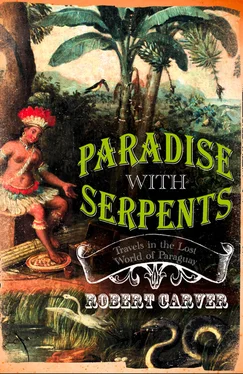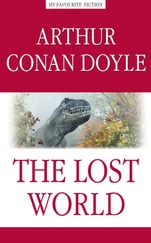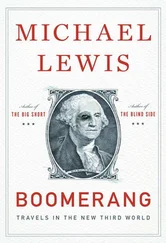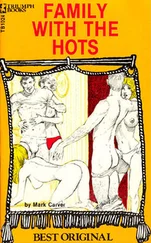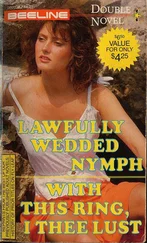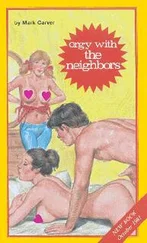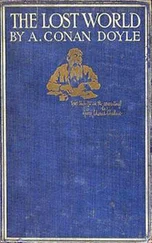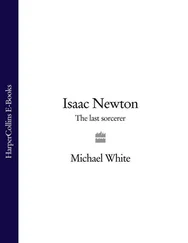Behind my room, in a small courtyard garden into which one could wander, was another prison, a small menagerie with hoopoes, cranes, two small monkeys in a cage, a couple of miniature deer of the muntjak type, and a large terrapin. As menageries go this was deluxe – leafy, calm, shady and private – but like the hotel, it was still a prison. The trees and shrubs in this small haven were dense and in deep shadow for much of the day. The birds and animals were so well hidden that you could be almost on top of them before you saw them. And everywhere, in the gardens, in the air, all around one, was Paraguay’s spectacular birdlife – on the wing, perched in trees, darting between bushes, a rich burble of song. Like Manaos in the Brazilian Amazon region, Asunción was a small city in a clearing in the middle of the jungle. For thousands of miles in every direction there was nothing but largely empty countryside – empty that is of human activity. For the birds flying across Asunción, or attracted by the food, the several acres of gardens the hotel offered to them was just more native jungle as a convenient stop-over. Living in the depleted, overpopulated Northern Hemisphere where any signs of wildlife are rare and fugitive, I found the explosion of bird noise in Paraguay startling and sobering. It was evidence of what we had lost by our overbreeding. Perhaps Europe had been like this in the Middle Ages. It was a real pleasure just to sit in a cane chair outside my room looking at and listening to the birds. The only thing I can compare it to is being inside a tropical aviary at a zoo. Tiny hummingbirds smaller than the first joint on my thumb, rainbow coloured with iridescent green the dominant shade, hovered and darted by a hibiscus plant, long thin beaks moving inside the flowers to search for drops of water or nectar. I would sit for timeless periods, completely enraptured by the sight, the wings of this tiny dynamo revolving thousands of times every second, so fast all one saw was a blurr, whirling beside the tiny body. The birds seemed completely indifferent to the ghost-clad gardeners who shuffled slowly to and fro, or to the few guests, who like me, sat outside in the shade drinking in this tranquil atmosphere. Overpopulation, pollution, the depleted environment are realities of our era; to come to somewhere like Paraguay was to realize just how much had been lost.
I walked back with Gabriella to her house, which was less than ten minutes away on foot: it was a small, neat semi-detached building with a thin strip of garden in front and a larger one behind. Workmen were engaged in some maintenance at the front. The whole neighbourhood was tidy and prosperous-looking, with well-kept gardens, lush shrubbery, and clean streets. It reminded me of middle-class parts of Los Angeles. I asked Gabriella which suburb of London it most resembled, as she knew both cities well. ‘Kensington,’ she replied immediately. ‘It is where the embassies are and where the wealthy live.’ I asked her what her house would be worth. ‘Normally US$60,000, but because so many people are trying to sell, you could get a place like this for $40,000 – even for $30,000. People are only paying about half the asking price at the moment.’ To put this in perspective, Gabriella was paying her maid $25 a week: ‘and my mother thinks I am paying her too much – she only pays $15.’ High unemployment, low wages, few people, inexpensive land and property, high crime and insecurity, imminent risk of political violence and revolution – it was a familiar Third World equation.
Gabriella invited me in to meet her husband Hugo, and their two small children. Hugo told me he had invested some money in a cigar-making concern, a factory dating back to the turn of the century. ‘Paraguayan tobacco is good – not as good as Cuban, but close. We use Javan leaf for the wrappers, the rest is all local product.’ How much did the local cigars cost? I asked. I had seen none on sale anywhere. ‘That is because they are too expensive for most Paraguayans to buy now,’ he replied. ‘About US$2 each.’ Cigarettes cost US$7 a carton of 200 even in my local supermarket. I assumed the smuggled items, or false brands were even cheaper. Paraguayan men were ferocious smokers. The local brands I had seen advertised promised exotic pleasures. There was ‘Boots’ (not, alas, ‘Old Boots’) featuring a US style cowboy. There was ‘Palermo’ (a wealthy suburb of Buenos Aires, as well as a city in Sicily). The slogan for Palermo was Paraguayo y con orgullo’ – ‘Paraguayan and with pride’. The poster showed a racing car, and a racing driver, fag in hand. Then there was ‘Derby Club’ a contentious blend, much copied, imitated, falsified and smuggled, a favourite of the contrabanders trade, according to press reports. Truck-loads of ‘Derby Club’ were frequently discovered crossing the Brazilian border, without the required tax stamps on them. There was also ‘York’ and ‘US Mild’. In the local whisky line I particularly liked ‘Olde Monke’ and ‘Gran Cancellor’. Close inspection of the labels of the locally manufactured whiskies indicated that they had been made from a base of sugar cane – in fact were really rum dressed up as whisky. The local rum, called caña , was a working-class peasant tipple with macho associations. Alcoholism among the peasants and Indians was a serious problem; drunken all-male rum sessions often ended in knife fights and death, 80% of all killings in Paraguay were caused by armas blancas – knives or machetes.
Hugo was a fan of Paraguayan dolce far niente . ‘You cannot imagine how pleasant it is, Robert, for a man just to lie back in a hammock in the garden with a cigar all afternoon, just looking up at the clouds passing in the sky.’ While your wife and the maid do all the work, I thought, but did not say. The work ethic appeared to have scant appeal to Paraguayan men. All across the city they were sitting, sprawling, lounging or completely prone, in a state somewhere between sleep and coma. What little work was being done seemed to be entirely by women, who looked as if they monopolized about 95% of all available energy – men slumped, women bustled. Hugo invited me to visit his cigar factory. ‘You can buy the cigars at the special reduced employees price,’ he told me. Like most other promises I was made in Paraguay this invitation came to nothing. Despite several requests neither the visit nor the cigars materialized. Did they exist? Was the whole thing a fantasy? Perhaps he just did spend all his days in a hammock, gazing up at the sky. More concretely, Gabriella cooked macaroni cheese for supper, which I shared with them, along with a bottle of Argentine red wine called ‘Borgoña’, which tasted nothing like Burgundy. ‘Believe no one in Paraguay,’ Gabriella had told me, ‘believe nothing you cannot see or touch – this is a land of make-believe and fantasy – of chantar .’
I walked back to the Gran Hotel through the warm, velvety, shadow-strewn tropical night, the scents of the flowers and shrubs rising from the gardens around me along my way. Above hung the Southern Cross, that constellation which reaffirms that one is truly in the Southern Hemisphere. The petrol station at the crossroads at Avenida España was still open, and a lone soldier, the night shift, stood on duty, rifle at the ready, guarding the pumps. I turned off down a side lane, and walked a hundred yards away from the main road, the wine and the soft air having relaxed me. It was a mistake. The lane became dark, the surface under my feet was pitted and potholed. From a group sitting under a clump of trees a hundred yards further on, a man rose and lurched towards me. I was coming from the light of the main road and would be silhouetted clearly. He started to shout incoherently, angrily, at me, stumbling as he tried to run towards me. Out of the shadows I saw he had a machete, which he waved at me from above his head.
Читать дальше
